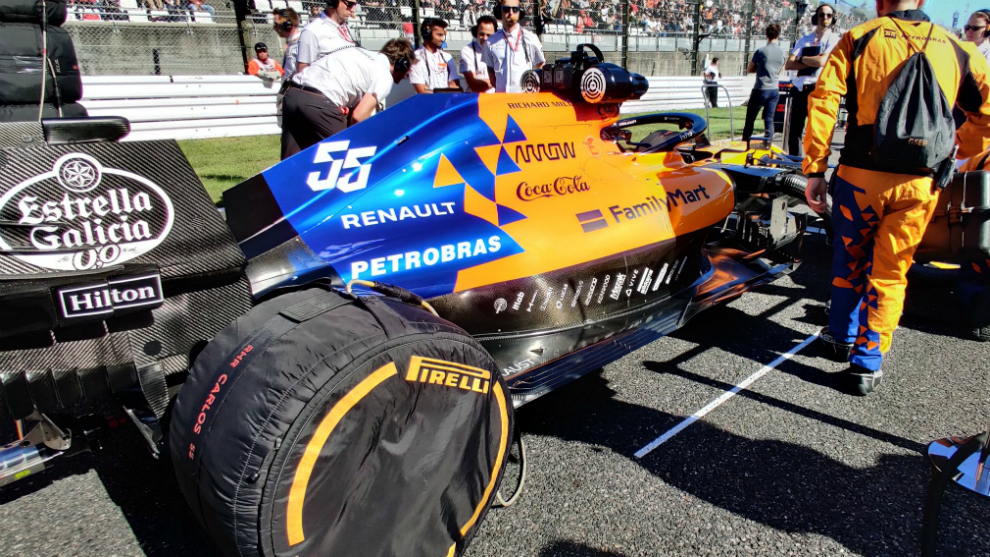FORMULA 1

'We terminated a R$700 million contract between Petrobras and McLaren in Formula 1'
Check out an excerpt below from the new book by Roberto Castello Branco, former president of the state-owned company, about his time at the company from January 2019 to April 2021:
I disagree with the view that a cost-cutting program should apparently focus only on the big items.
Zero tolerance for any excess, regardless of its magnitude, is essential to consolidating a culture of value. The example of austerity must come from senior management. Otherwise, credibility fades. Nor can we ignore the fact that the sum of many small items can result in a significant amount.
I fully agree with the statement by General Colin Powell, a great military strategist and the first black American to hold the position of Secretary of State of the United States: "If you want to achieve excellence in the big things, develop the habit of the small. Excellence is not an exception, it must be the predominant attitude" (...).
At the first board meeting, someone proposed a pay raise for the executive board as a way of restoring the real value due to past inflation. I immediately refused. How could I ask for "blood, sweat and tears" from employees if I myself was going to start receiving a pay raise?
During a presentation by the Executive Communications Manager - at the beginning of my term, they reported directly to the Presidency - I learned that in 2018, Petrobras had signed six-year sponsorship and technological development contracts with a Formula 1 team, McLaren, which included the development of a special gasoline to fuel the vehicles and required us to spend around R$700 million (Brazilian currency) at the real/pound exchange rate at the time.
The sponsorship contract signed in 2018 definitely made no sense for several reasons. Petrobras has been one of the best-known brands in Brazil for decades, and advertising is not needed to attract consumers. The best thing to do was to work to become a profitable company focused on protecting the environment, respecting people and ensuring the safety of its operations; among other things, it would improve its reputation.
Petrobras did not have global retail operations. As a fuel retailer, its activities were limited to a few countries in South America, were on a modest scale and were being sold. BR Distribuidora, at that time still a subsidiary of Petrobras with a minority stake held by private investors, had significant retail operations in Brazil, with more than 8,000 service stations, and did not express an interest in taking over the contract in place of Petrobras.
After being privatized, BR (now Vibra Energia) has invested in advertising, but has not chosen to sponsor Formula 1, restricting itself to the domestic market, where it competes with other fuel distributors.
To make matters worse, a cigarette manufacturer had joined McLaren's sponsorship group, and we did not want to see our brand associated with a product that was known to be harmful to health.
Ultimately, Petrobras was still a highly indebted and expensive company, and sponsoring an F1 team was an expensive distraction.
There was interest in technological development, as it could make it possible to launch a new product on the market; however, the tests did not evolve as expected and we decided to terminate the contract.
I tasked Marcelo Klujska (a consultant to the Petrobras presidency at the time), known as MK, with leading the team that would negotiate the termination of the contract with McLaren, a mission that proved to be challenging. The car company adopted a very tough stance. When the meeting began, McLaren staff said they knew that MK had been the person who had ordered the suspension of the payment of the portion of the contract that was due on that date. In fact, it was he, in accordance with my decision, who had adopted a stance that would force McLaren to come to the negotiating table.
But the fact is that the episode showed that some Petrobras employee had passed on internal information to another company. McLaren did not want to hear about the termination of the contract. To aspire to podium finishes, a team needs at least US$400 million per year in sponsorships. To make the story more interesting, the matter had been leaked to the media and McLaren accused us of damaging its image, which was not our intention and did not correspond to reality.
Finally, after a frank conversation with Zak Brown, CEO of McLaren, things calmed down. MK was able to move forward with the negotiations and, in October 2019, we reached an agreement to terminate the contract.
Petrobras had signed a 6-year contract with no exit clause. This was certainly a gross error that left us in a fragile position. This led us to pay compensation of £20 million for the premature termination.
At the Brazilian F1 Grand Prix, held the following month, McLaren cars no longer carried the Petrobras brand.
Mundoquatrorodas

Nenhum comentário:
Postar um comentário